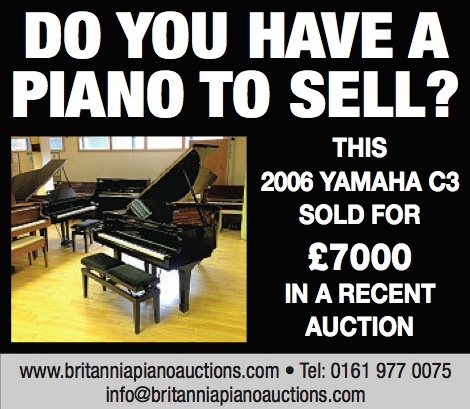Archive for January, 2015
Horowitz’s & Beecham … A Flashy Day In History
Posted by Britannia Piano Auctions in History on January 12, 2015
12th January 1928
Even with the rise of jazz and pop music during the period, the 1920s and 30s was a time when performances of classical music, both live and on radio, drew enormous audiences in the. Of the many composers, conductors and performers who became household names during this era, none made a bigger splash than a young pianist from Kiev named Vladimir Horowitz. From his first U.S. performance on January 12, 1928, Horowitz established a special bond with American audiences—a bond that would make him the best known and most beloved pianist in his adopted country for the next 60 years.
Horowitz was not the primary draw for the concertgoers attending his debut at Carnegie Hall. The headliner that night was Sir Thomas Beecham, acting as guest conductor of the New York Philharmonic, it was his first time in front of the orchestra and his first time on the podium in America. The dynamic Beecham—”crouched like a panther, ready to spring upon a piece of counterpoint the instant that its head projected from its lair”—drew raves in the next morning’s New York Times review. But it was the young Russian pianist playing Tchaikovsky’s Piano Concerto No. 1 who clearly stole the show.
The Times’ Olin Downes was reserved in his assessment of Horowitz’s artistic promise: “Very possibly Mr. Horowitz is a great musician as well as virtuoso….But he has that to prove.” But the critic left little doubt about the impact on the audience of the young man who “caused most of the intermission to be occupied in applauding and cheering him and calling him back to the stage. It has been years since a pianist created such a furor with an audience in this city.”
What that initial review referred to as Horowitz’s “electrical temperament, his capacity for animal excitement” was the basis of harsh critiques that followed Horowitz throughout his career. American critic and composer Virgil Thompson saw Horowitz as an artless panderer, a “master of distortion and exaggeration.” But there could be no denying the effect of Horowitz’s playing both on audiences and on musicians of future generations.
On the occasion of Horowitz’s death in 1989, the American pianist Emmanuel Ax offered an assessment that was probably shared by the audience in that first American concert 61 years earlier: “He brought the idea of excitement in piano playing to a higher pitch than anyone I’ve ever heard….There was the sense of an unbelievable energy being harnessed, and the feeling that if he ever let it go, it would burn up the hall.”
Elvis And His Penchant For Pianos With History
Posted by Britannia Piano Auctions in Uncategorized on January 8, 2015
Elvis would have been 80 years old today and the King himself had something of a penchant for pianos with history:
Elvis Presley’s beloved white Knabe grand piano, as featured in his music room at Graceland from 1957 to 1969
“This elegant musical instrument, so well-loved and played by Elvis, is presented with wonderful provenance back to the 1930s,” said Doug Norwine, Director of Music & Entertainment at Heritage, “not to mention that it was an emotionally-charged prized possession of the King himself.”
The Knabe piano, besides being owned by Elvis for more than a decade, is a storied set of keys that occupied the position as the house piano in Ellis Auditorium in Memphis, TN from the early 1930s through 1957, when Elvis himself bought it and had it refurbished in white. Not only is it an instrument that Elvis loved to play in his own home, it is also the very piano played by his favorite gospel performers at revivals that Elvis attended as a boy, during which, as an enthralled member of the audience, he surely must have dreamed of his own future stardom.
“During the 1930s, 1940s, and early 1950s, the stage at Ellis Auditorium was graced by the greatest local and national touring musical acts of the period including W. C. Handy, Duke Ellington, Count Basie, Cab Calloway, and certainly many, many others,” said Norwine. “In 1957, this Knabe grand piano was sold during a remodeling project at the Ellis. He could have afforded any piano on the planet, but when Elvis heard this one was for sale, he didn’t hesitate.”
We can’t help you to buy this piano but we thought you should know about it as it is an important part of piano history and that’s something we all enjoy.
The king frequently had his picture taken at pianos but could he play ?
We called a few people in the know to find out and they said:
Yes he did, he learned as a child, he was not fantastic but he could ‘hold his own’.
There is a DVD of his last public performance floating around in cyberspace where he is playing a solo version of the Righteous Brother’s song “Unchained Melody”. He plays piano and sings, shortly after the video he Elvis Sadly died…. Or did he? 😉








